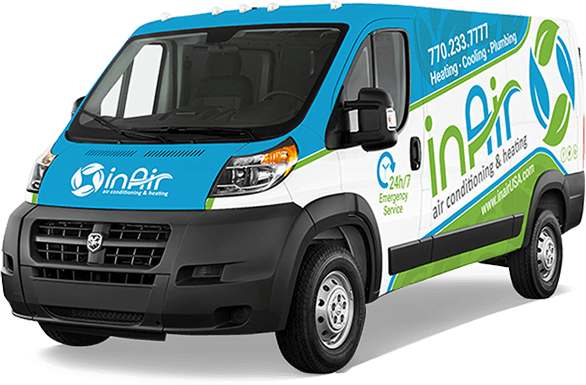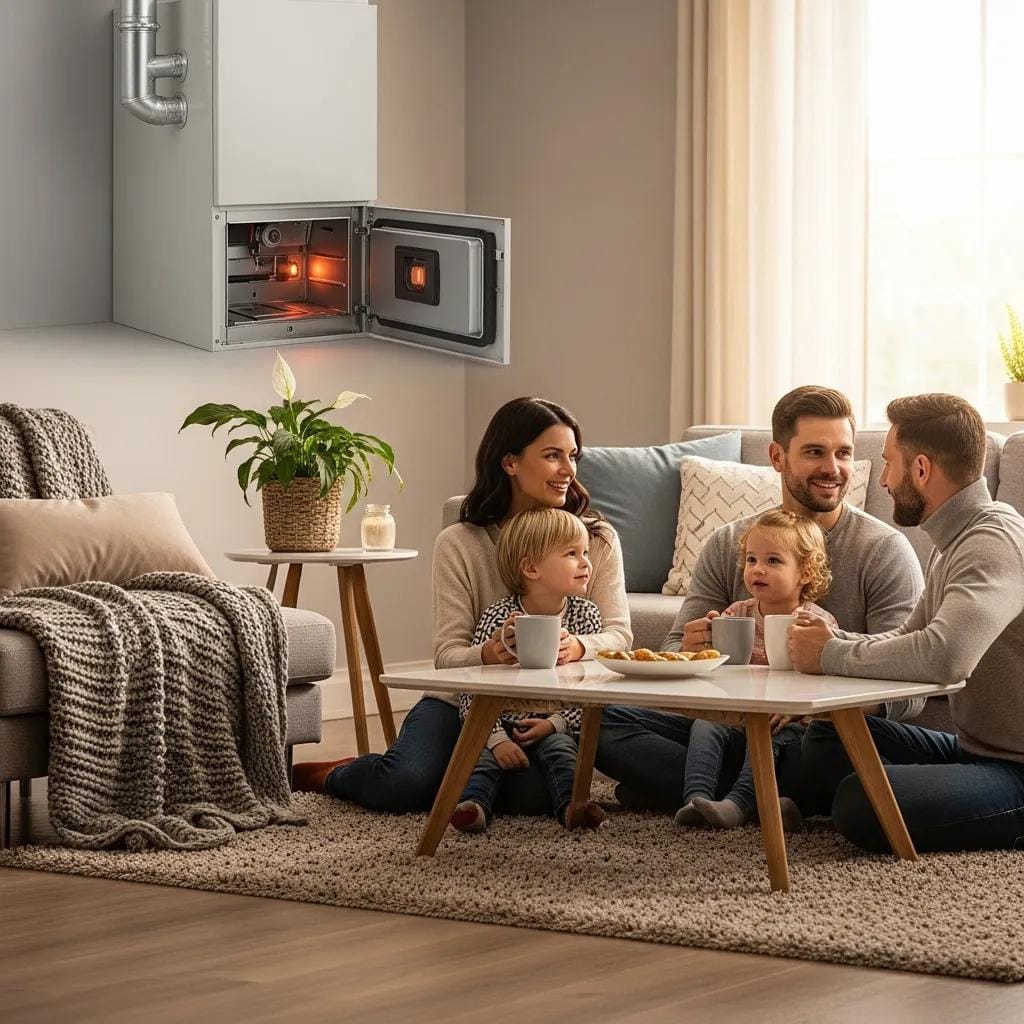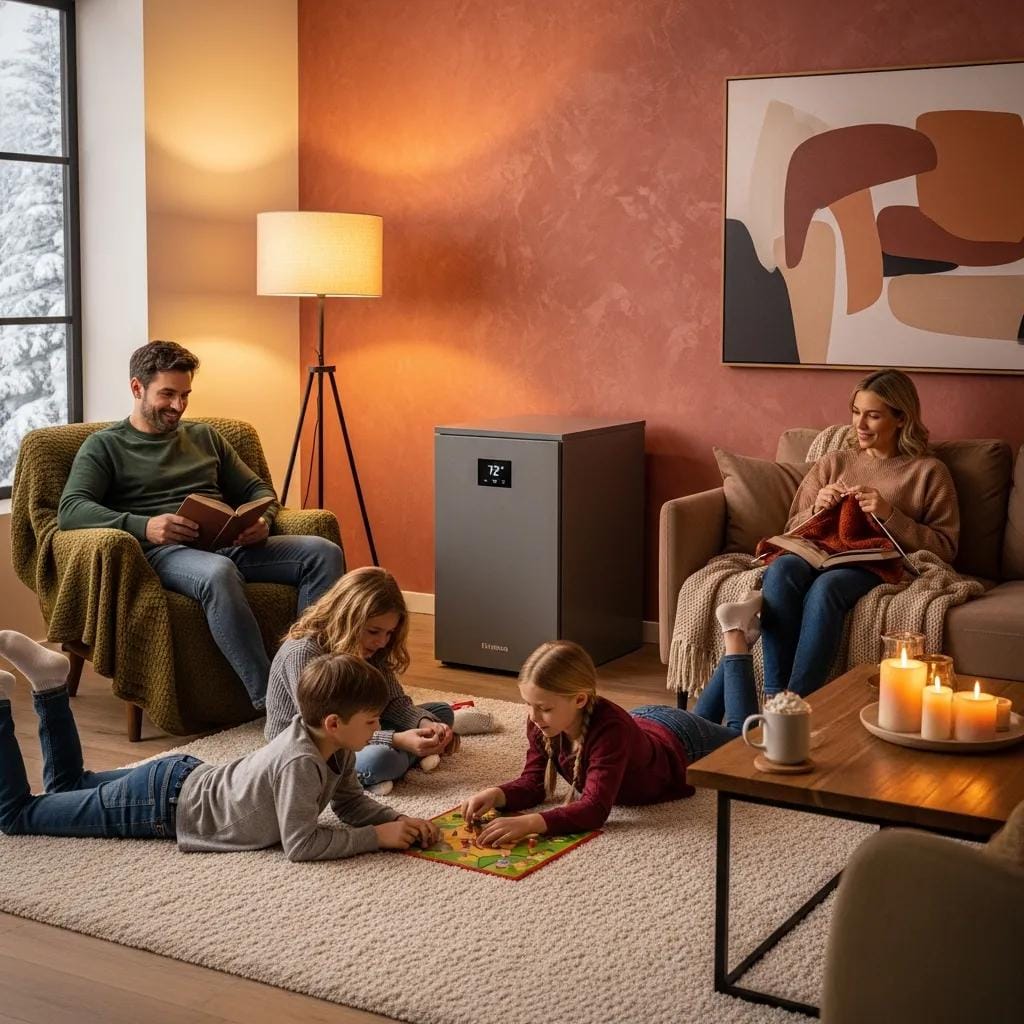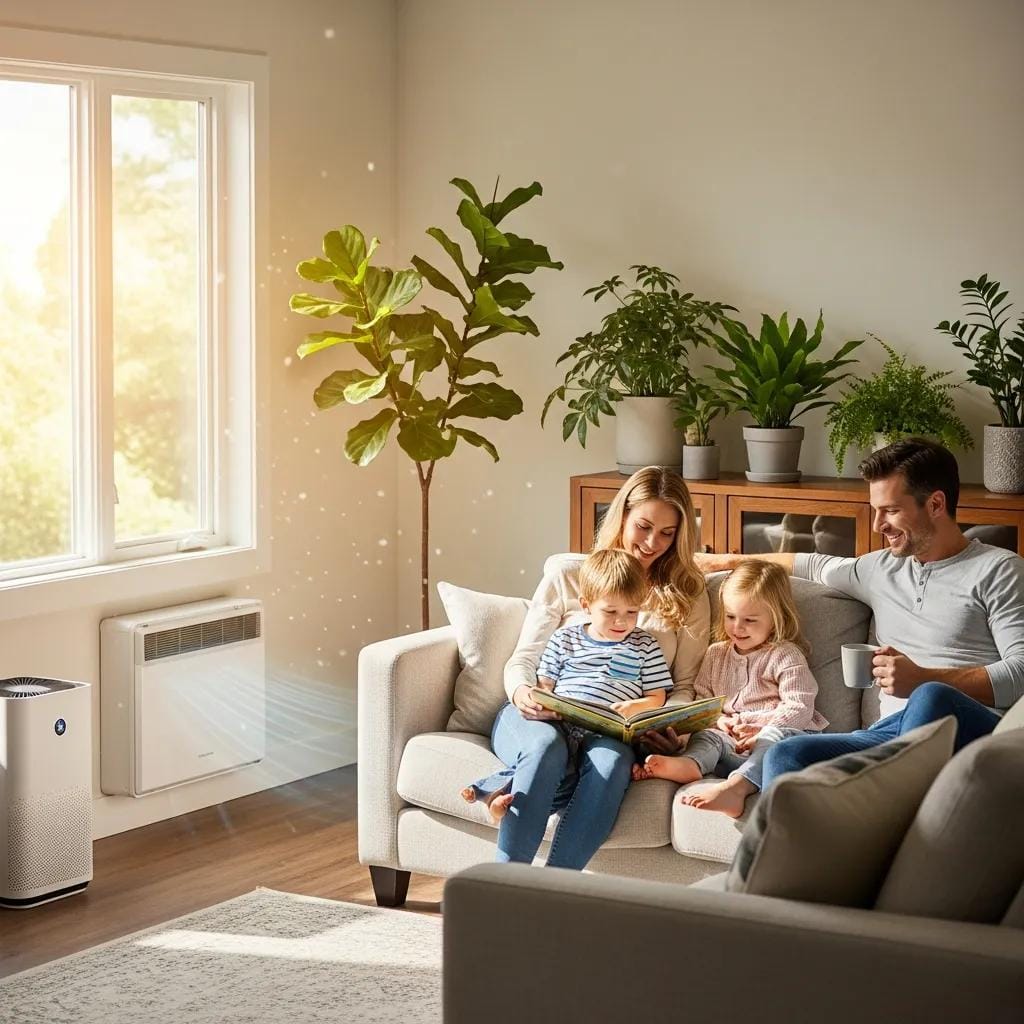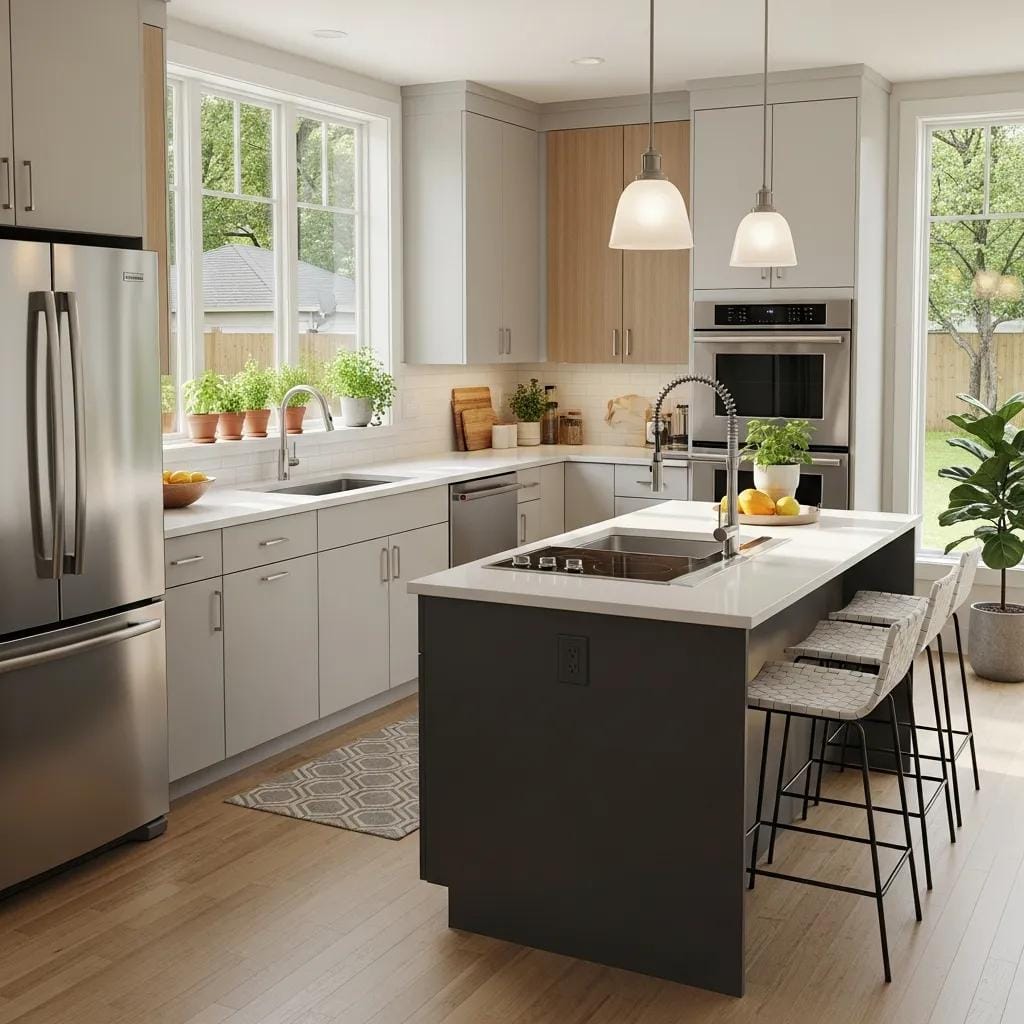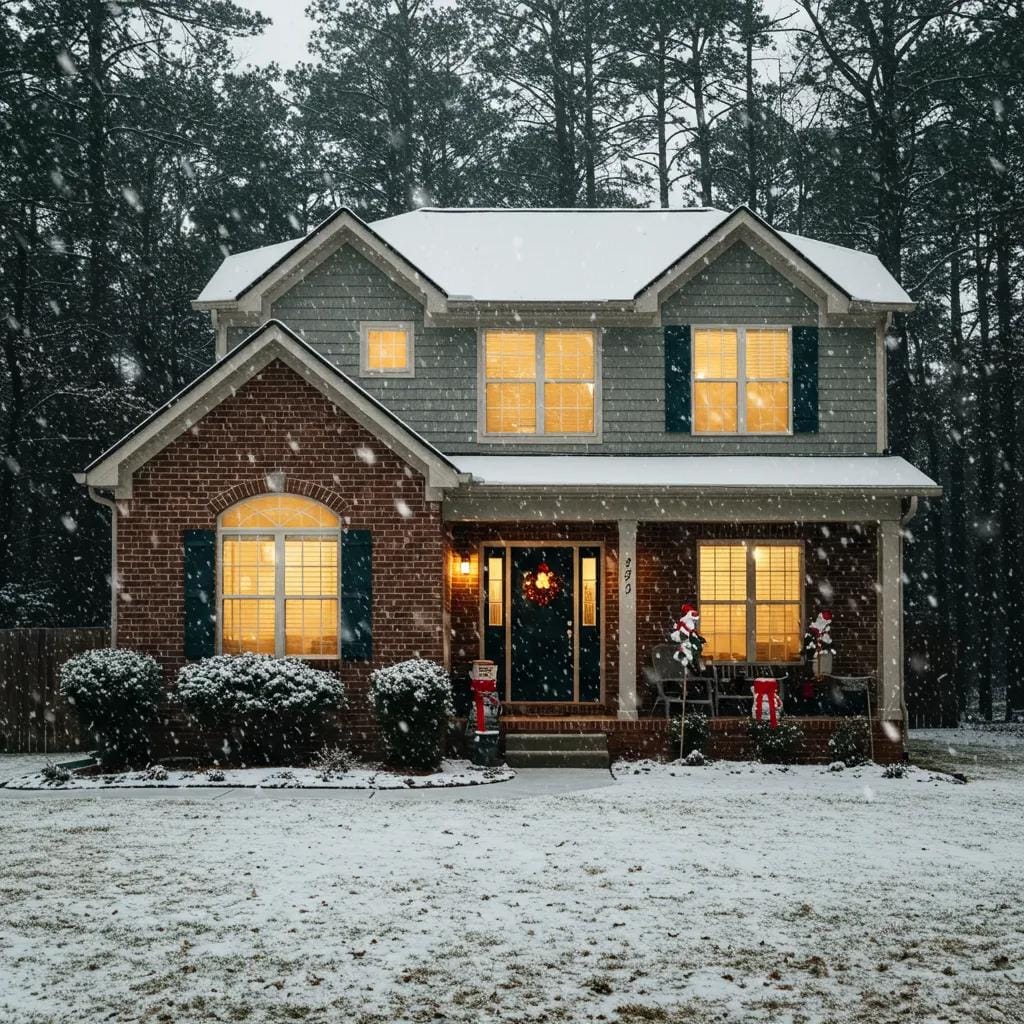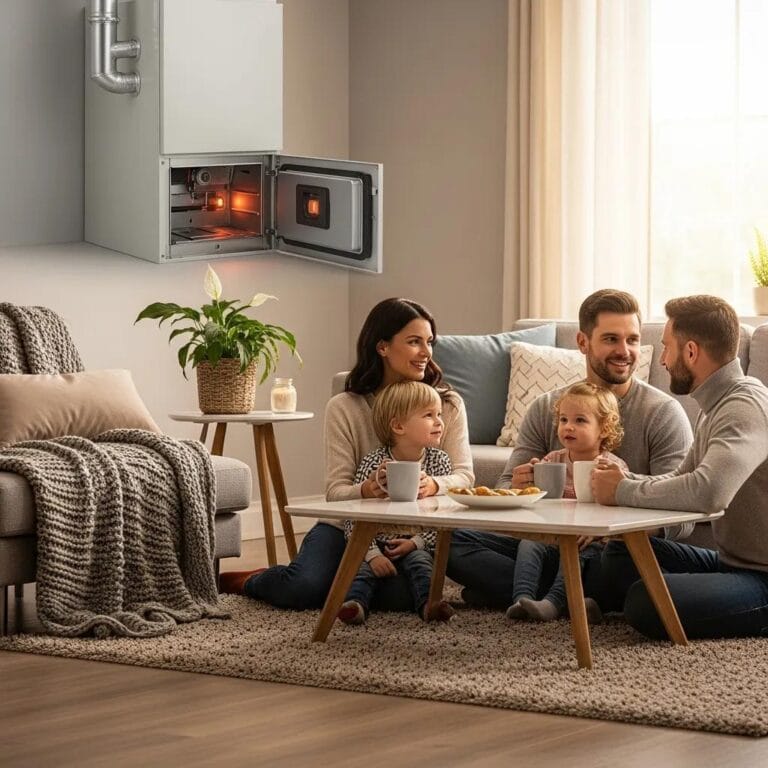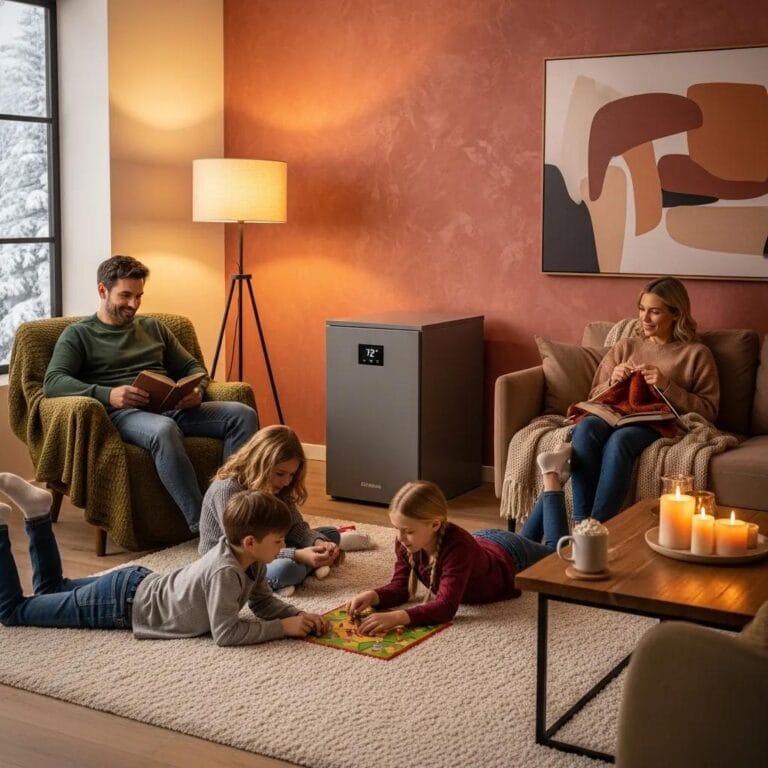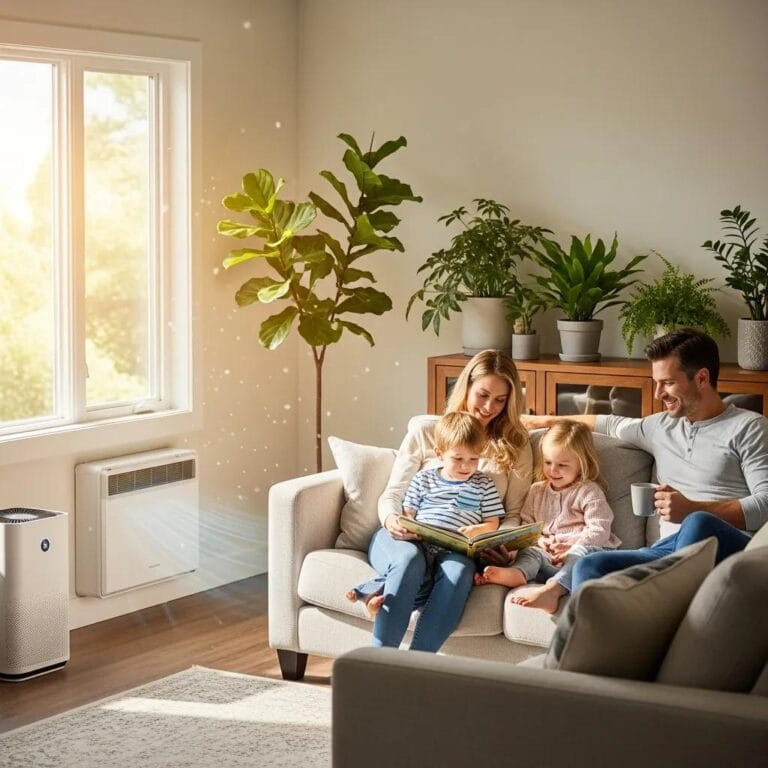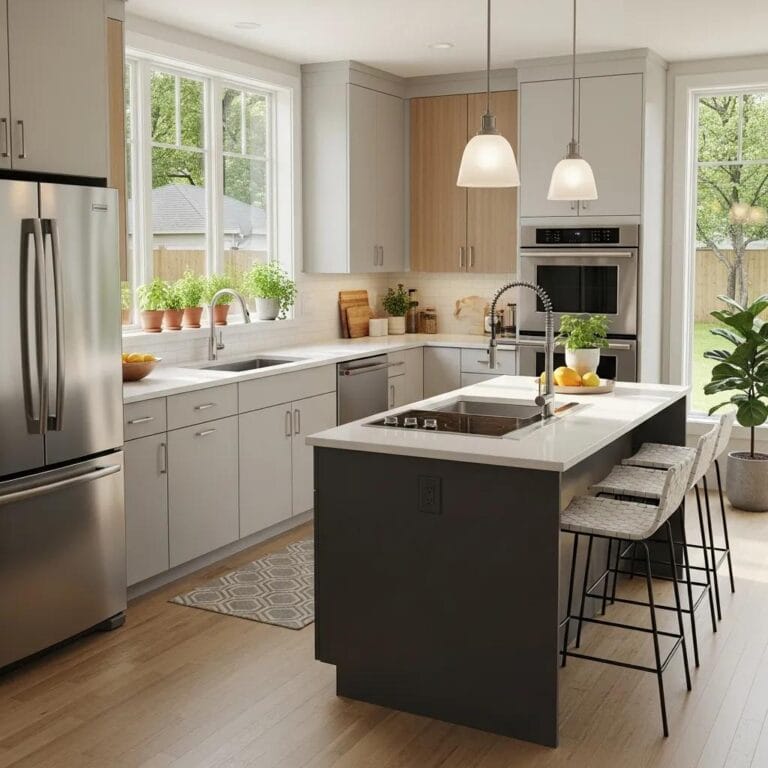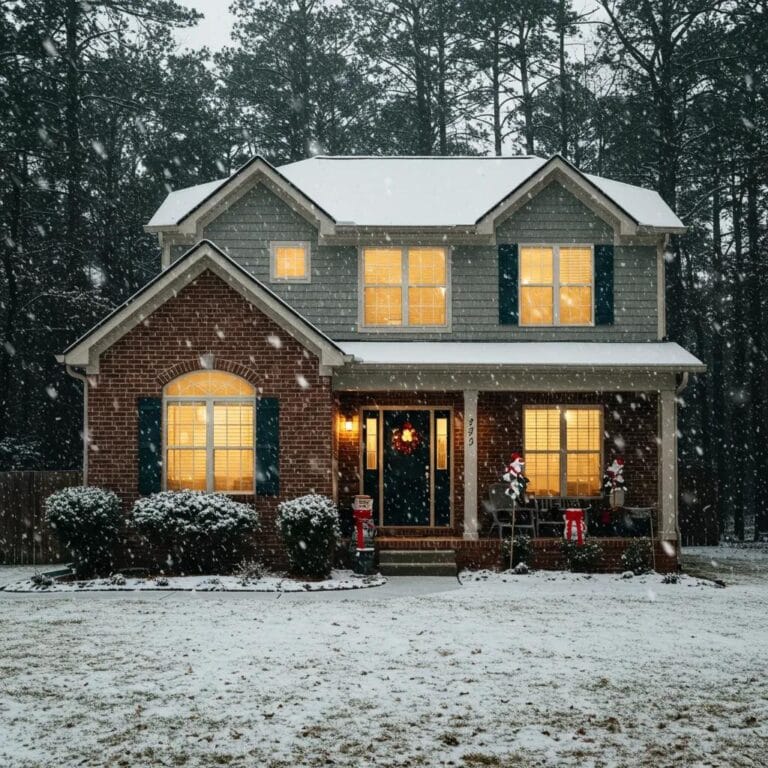Seasonal changes in Atlanta bring fluctuating temperatures that can put your HVAC system to the test. To keep your home comfortable and energy-efficient year-round, it’s essential to perform regular maintenance as the seasons shift.
Proper HVAC care helps prevent unexpected breakdowns, reduces energy bills, and extends the life of your system. In this guide, we’ll share essential HVAC maintenance tips tailored for Atlanta residents, ensuring your system can handle the city’s hot summers and chilly winters with ease.
Whether you’re a longtime homeowner or new to indoor HVAC upkeep, these tips will help you stay ahead of seasonal demands and keep your home running smoothly all year long.
HVAC Maintenance Tips Tailored for Atlanta Residents: Stay Cool Year-Round
Importance of Seasonal HVAC Maintenance
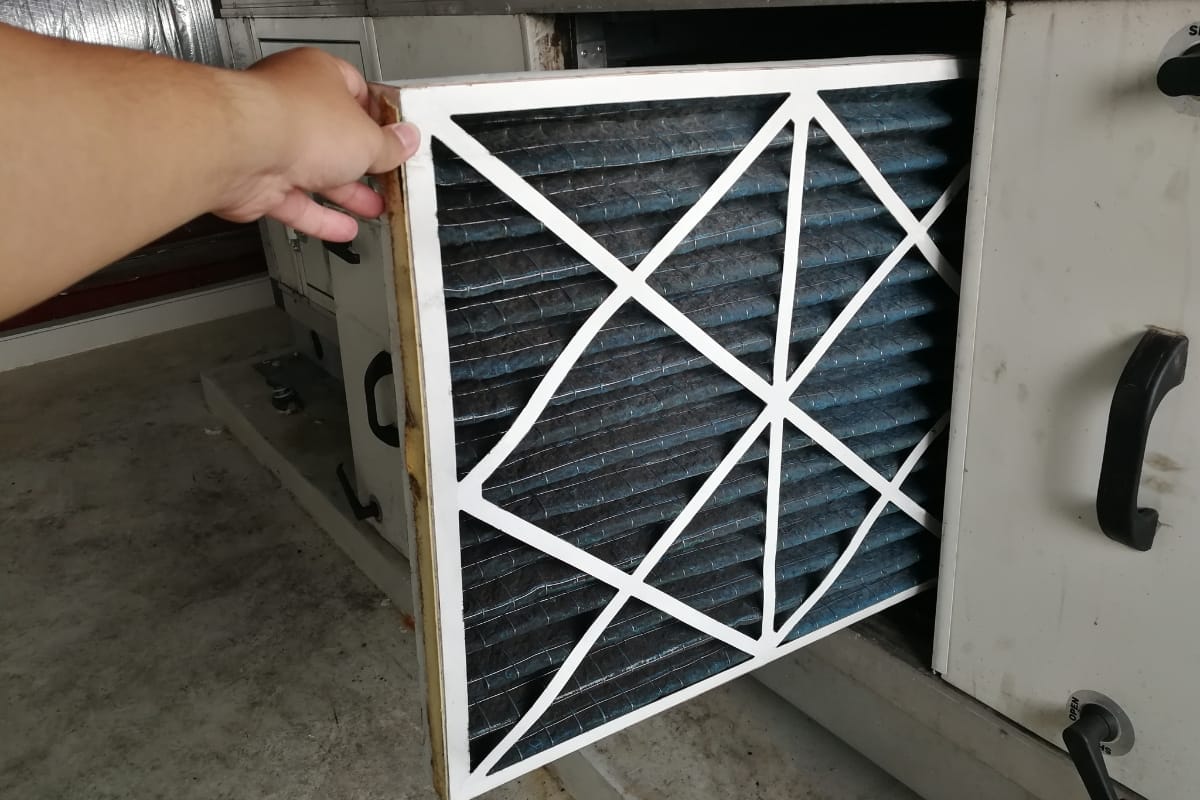
Regular HVAC preventative maintenance is essential for Atlanta residents, where seasonal temperature shifts demand efficient heating and cooling systems year-round. Routine maintenance ensures that your HVAC system operates effectively, keeping your home comfortable while minimizing energy costs.
Without proper upkeep, systems can experience reduced efficiency, unexpected breakdowns, and costly repairs, as well as contribute to poor indoor air quality.
Preventative Benefits
Professional HVAC preventative maintenance allows homeowners to catch minor issues before they escalate into major problems.
For instance, replacing dirty air filters improves airflow and prevents strain on the system, while checking for leaks or worn components ensures consistent performance during peak usage periods.
These proactive measures not only extend the lifespan of the system but also reduce the likelihood of emergency repair calls during extreme weather conditions.
Energy Efficiency and Cost Savings
An efficiently running indoor HVAC unit consumes less energy, directly translating to lower utility bills. Maintenance tasks like cleaning condenser coils, inspecting ducts for obstructions, and calibrating the thermostat can significantly enhance the system’s performance.
Regular tune-ups also ensure that your unit meets energy efficiency standards, which can help reduce your carbon footprint and align with sustainable living practices.
Enhanced Comfort and Air Quality
A well-maintained HVAC system delivers consistent temperatures and better humidity control, making your home more comfortable.
Additionally, regular maintenance helps improve indoor air quality by reducing allergens, dust, and pollutants that accumulate in clogged filters or uncleaned ducts. For residents in Atlanta, where allergens like pollen can be a concern, this is particularly important.
Understanding Your HVAC System
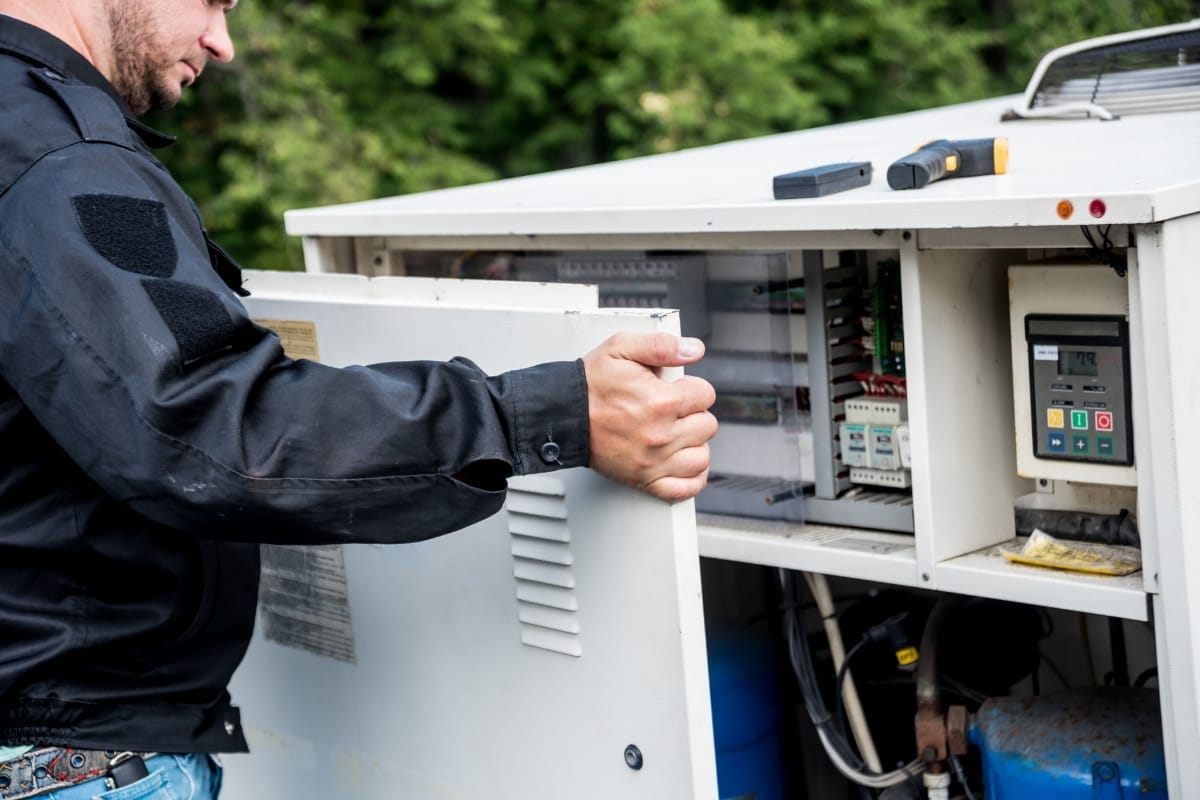
Before diving into the preventative maintenance tips, it’s important to understand how your air conditioning unit system works. The system consists of two main components: the heating unit and the cooling unit.
The heating unit is responsible for keeping your home warm during the colder months, while the cooling unit provides relief from the scorching summer heat. Understanding how these components function will help you identify any potential issues and take appropriate action.
To gain a better understanding of your HVAC system, familiarize yourself with its different parts such as thermostats, air filters, vents, ducts, and insulation. This knowledge will come in handy when performing maintenance tasks or troubleshooting problems.
Checking and Changing Air Filters Regularly
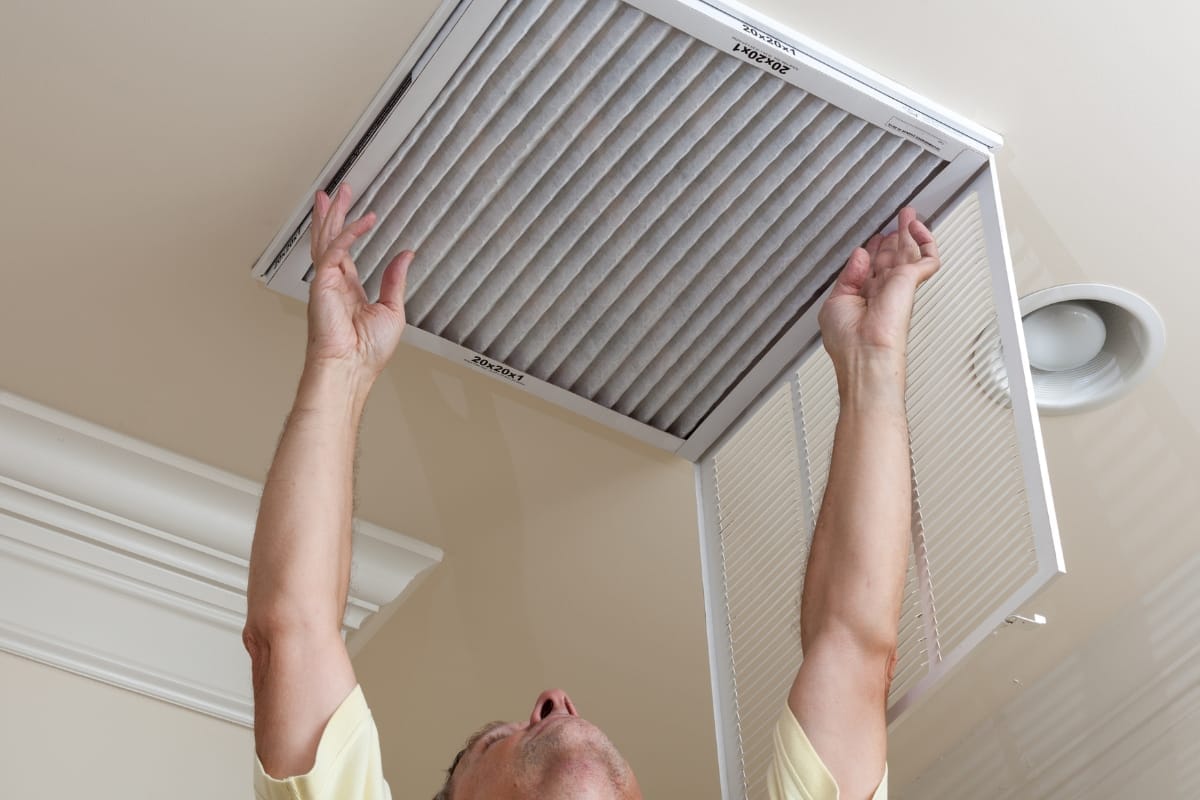
Air filters are essential components of any HVAC system, responsible for maintaining good indoor air quality by capturing dust particles, allergens, pet dander, and other pollutants.
Over time, as these particles accumulate, filters can become clogged, significantly restricting airflow. This buildup not only decreases the efficiency of your HVAC system but can also lead to higher energy bills and strain on your system, potentially shortening its lifespan.
To prevent these issues, checking your air filters regularly and replacing them as necessary is crucial. The frequency of replacement depends on several factors, including the type of filter, the level of activity in your home, and your household’s specific needs. For instance, homes with pets, smokers, or allergy sufferers may require more frequent filter changes, often every 30-60 days. During high-pollen seasons or in areas with construction, filters may need to be checked more frequently to maintain optimal performance.
Choosing the right filter is another important aspect of maintenance. High-efficiency particulate air (HEPA) filters are excellent for trapping smaller particles, which is particularly beneficial for those with allergies or asthma. However, these filters can restrict airflow if not compatible with your system, so consult your HVAC manual or a professional when selecting filters.
Regularly replacing filters does more than just improve indoor air quality—it enhances your HVAC system performance. With clean air conditioner filters, airflow is unrestricted, which reduces energy consumption, helps maintain consistent temperatures, and prolongs the life of your unit. This simple maintenance step can save you money on repairs and energy bills while ensuring a healthier and more comfortable living environment for your family.
Cleaning and Clearing Vents and Ducts
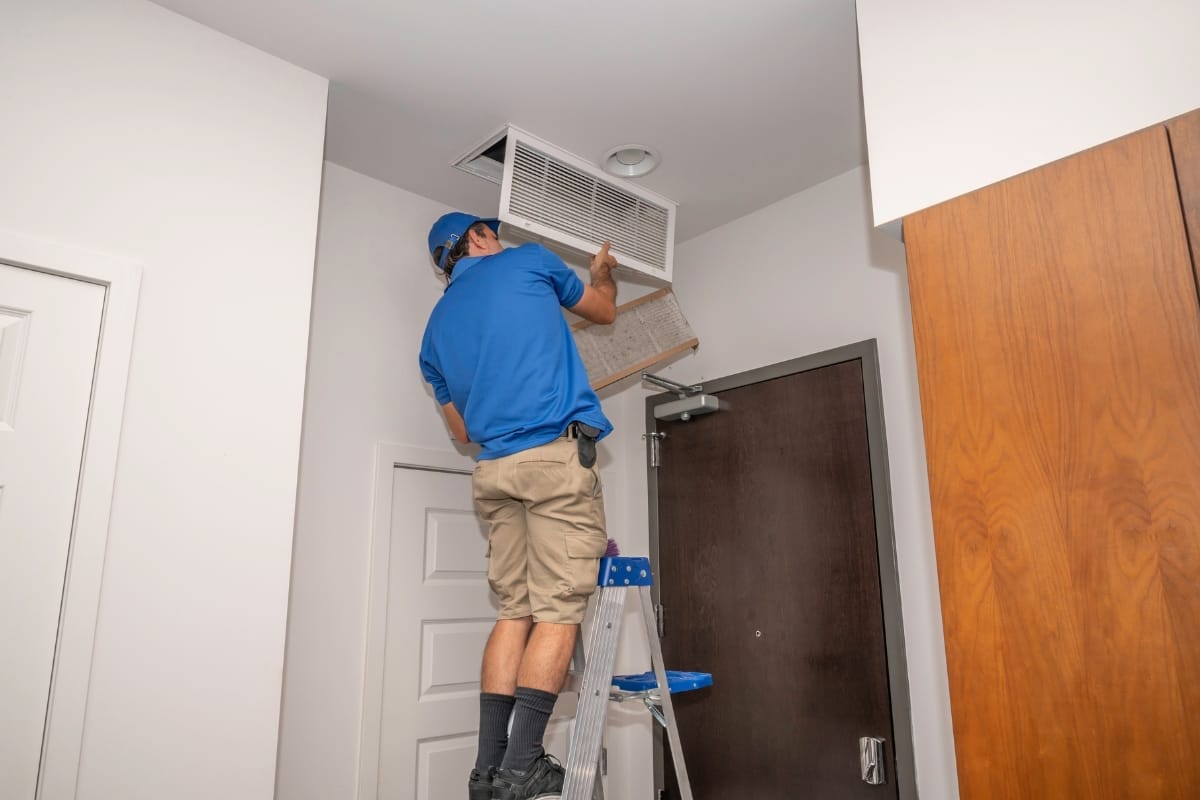
Vents and ducts play a crucial role in distributing conditioned air evenly throughout your home, maintaining comfort and indoor air quality. However, over time, they can accumulate dust, dirt, pet dander, and other debris, which can obstruct airflow, reduce energy efficiency, and even impact your health by circulating allergens and pollutants. Proper maintenance is essential to ensure your HVAC system operates at peak performance.
To start, inspect your vents and ductwork for visible buildup or blockages. Remove vent covers and clean them with a vacuum or a damp cloth. Use a vacuum cleaner with a hose attachment to remove debris from accessible areas inside the ducts. While this can address surface-level dirt, deeper cleaning may require professional assistance.
Professional duct cleaning services employ advanced tools, such as rotary brushes and high-powered vacuums, to remove dirt and contaminants from the entire duct system.
This is particularly beneficial if you notice excessive dust in your home, unexplained respiratory issues, or if your HVAC system is underperforming despite regular maintenance. Homes with pets or smokers, or those undergoing renovations, may require more frequent duct cleaning due to increased debris accumulation.
In addition to cleaning, ensure that vents remain unobstructed. Furniture, rugs, or other objects blocking vents can restrict airflow and force your HVAC system to work harder, leading to higher energy consumption and wear on components. Periodically check vent placement to ensure air circulates freely throughout your space.
Regular cleaning of vents and ducts not only enhances the efficiency of your HVAC system but also contributes to healthier indoor air. Clean ducts reduce the recirculation of allergens and irritants, creating a more comfortable and safe environment for your family.
Adjusting Thermostat Settings for Efficiency
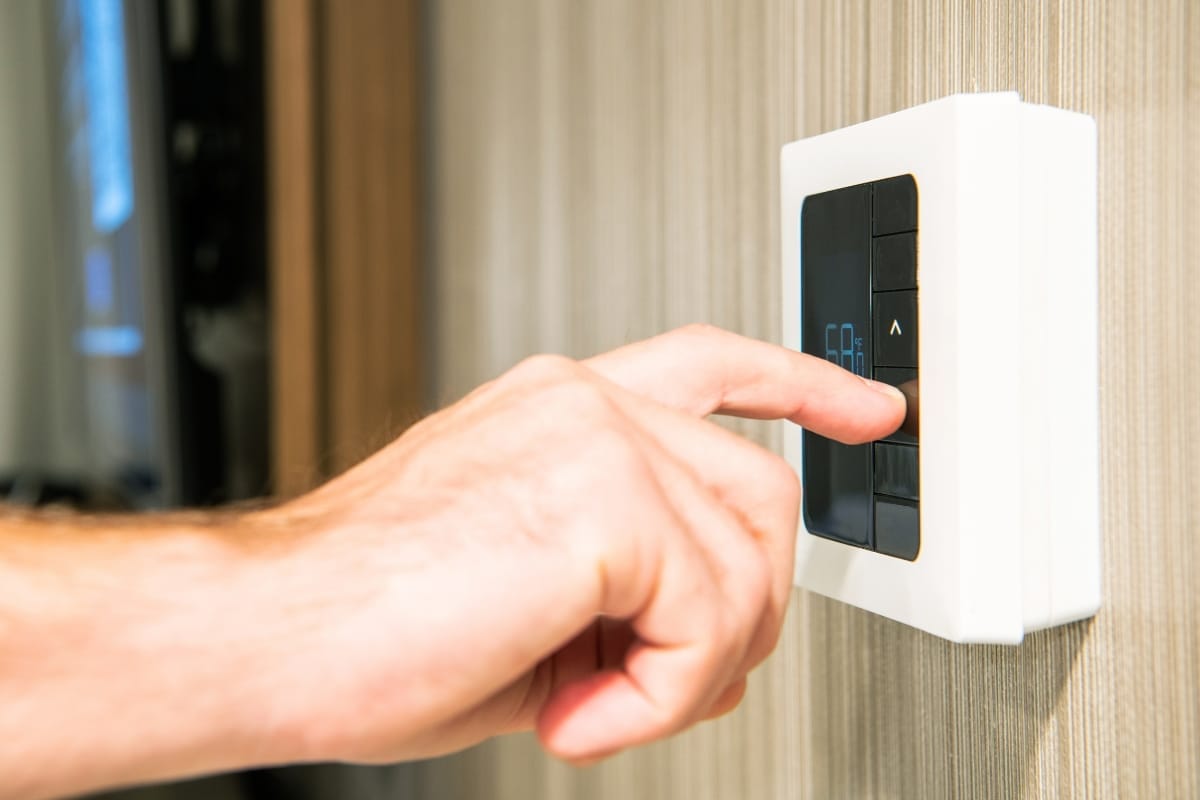
The thermostat acts as the command center for your HVAC system, and making small adjustments to its settings can lead to significant energy savings while maintaining comfort. By tailoring your thermostat settings to the seasons and your daily routine, you can enhance efficiency and reduce energy costs.
In the winter months, set your thermostat to a lower temperature when you’re asleep or away from home. The U.S. Department of Energy recommends a baseline of 68°F while you’re awake and lowering it by 7–10°F for periods when the house is unoccupied or when you’re sleeping. This simple adjustment can result in up to 10% savings on heating bills annually.
During Atlanta’s hot and humid summers, raising the thermostat by a few degrees while you’re out can significantly cut cooling costs. Aim for a temperature of around 78°F when you’re home and slightly higher when the house is empty. Using ceiling fans to circulate air can help maintain a comfortable environment without overburdening the HVAC system.
For ultimate convenience and efficiency, consider upgrading to a programmable or smart thermostat. Programmable thermostats let you schedule temperature adjustments for different times of the day or week. For example, you can pre-set your system to cool the house shortly before you return home, ensuring comfort without wasting energy.
Smart thermostats take efficiency a step further by allowing remote access and control through smartphone apps. Many models learn your habits over time and automatically adjust temperatures based on your preferences and occupancy patterns. Additionally, they provide energy usage insights to help you identify further ways to save.
Scheduling Professional HVAC Inspections
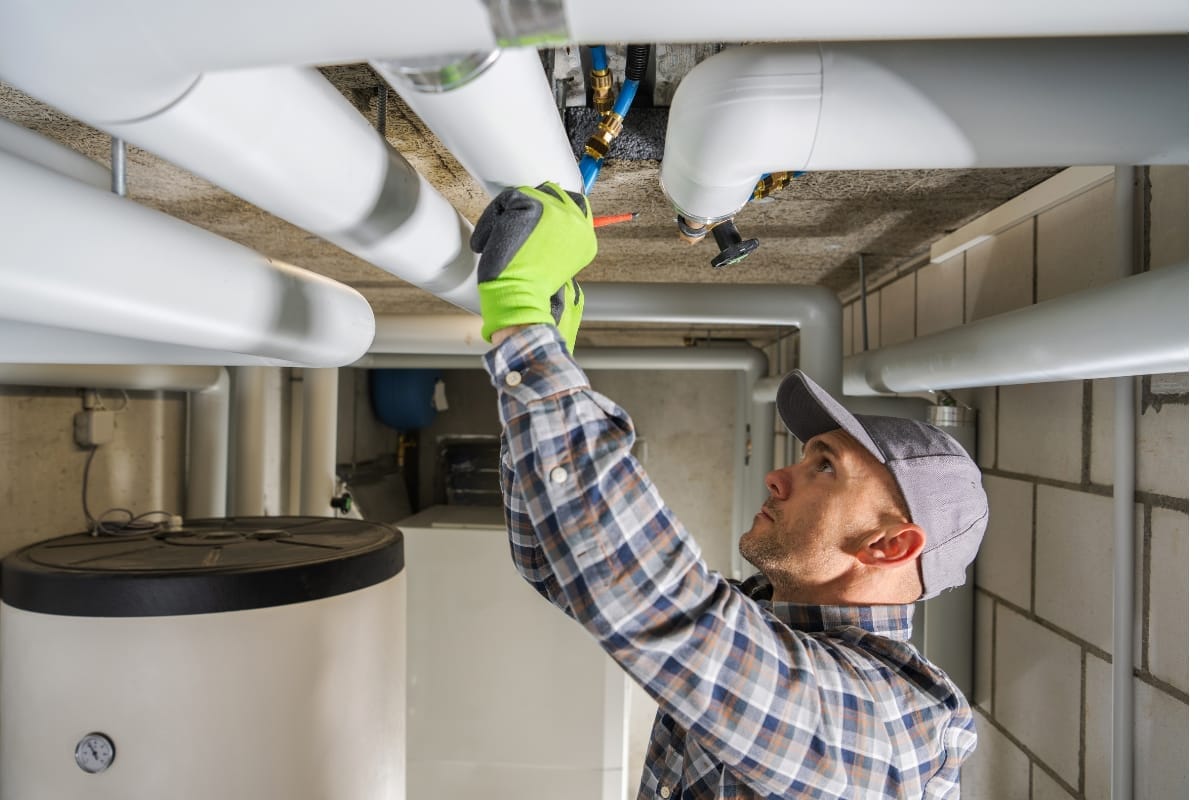
While homeowners can manage many HVAC maintenance tasks, scheduling professional inspections at least once a year is crucial to keep your system running efficiently and to address potential issues before they escalate. A certified HVAC technician brings expertise and tools to conduct a thorough assessment, ensuring your system operates at peak performance year-round.
During a professional inspection, the technician evaluates critical components of your HVAC system. This includes checking electrical connections for loose wires, measuring refrigerant levels to ensure proper cooling, and inspecting motors and belts for wear and tear. They also clean and lubricate moving parts, reducing friction and preventing unnecessary strain on the system.
A technician will test the thermostat for accuracy and calibration, ensuring it communicates effectively with your HVAC unit. They’ll also examine the ductwork for leaks or blockages that could compromise airflow and energy efficiency. Identifying these issues early can prevent minor problems from becoming expensive repairs.
Seasonal changes can put unique demands on your HVAC system, making biannual inspections—one before the cooling season and one before the heating season—an ideal approach. For instance, a spring inspection can prepare your air conditioning for Atlanta’s hot summers, while a fall check ensures your heating system is ready for colder weather.
Professional inspections also help maintain indoor air quality by addressing problems like clogged filters, mold buildup in ducts, or improper ventilation. Cleaner air contributes to a healthier home environment and reduces strain on the HVAC system.
Addressing Common HVAC Issues
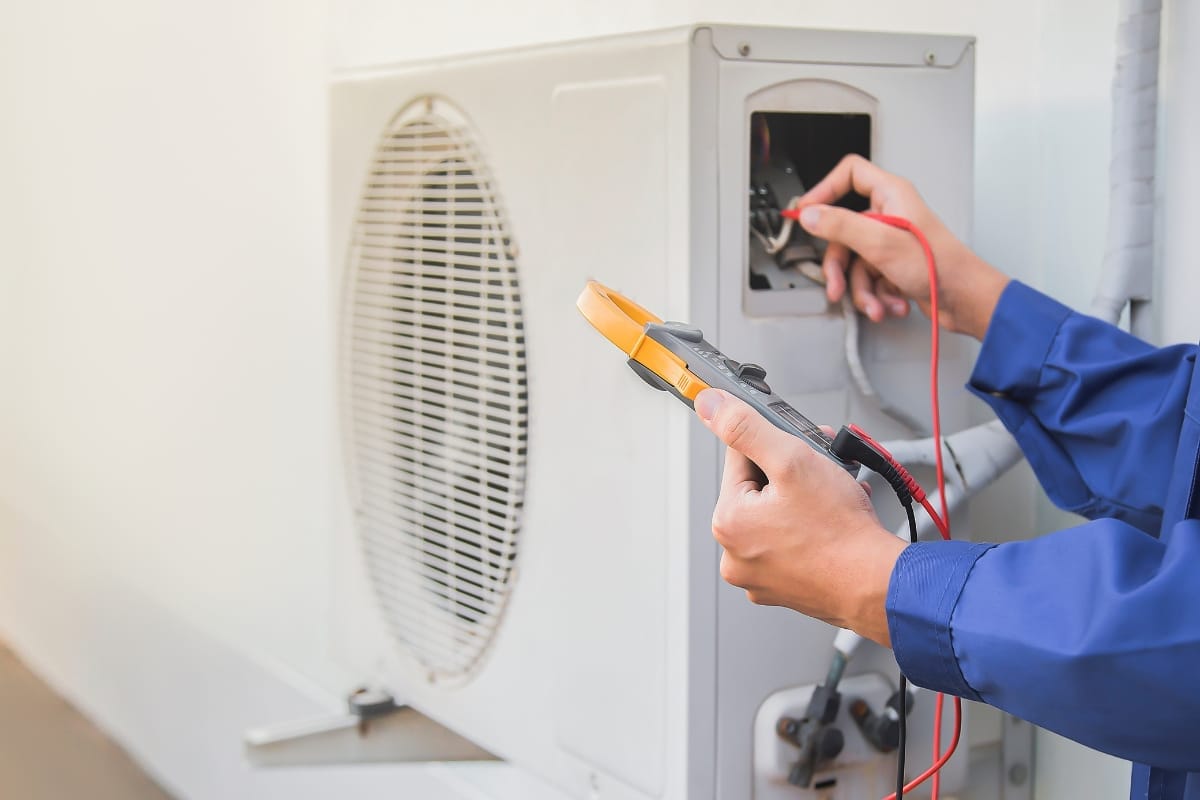
Even with consistent maintenance, HVAC systems can experience common problems that require immediate attention to maintain comfort and efficiency. These issues often provide early warning signs that, if addressed promptly, can prevent costly repairs and extended downtime.
One of the most noticeable signs of trouble is unusual noises coming from the unit. Sounds such as rattling, banging, or screeching may indicate loose parts, motor issues, or problems with the blower assembly. Addressing these noises quickly can prevent minor issues from escalating into major mechanical failures.
Uneven heating or cooling throughout your home is another common problem. This could be due to clogged ducts, an improperly calibrated thermostat, or an aging system struggling to distribute air evenly. A professional technician can identify the root cause and recommend solutions, such as sealing ducts or upgrading to a more efficient unit.
Frequent cycling—where your system turns on and off more often than usual—can indicate problems like a dirty air filter, a malfunctioning thermostat, or an undersized unit for your space. Frequent cycling not only reduces efficiency but also places additional wear and tear on your system, shortening its lifespan.
A sudden spike in your energy bills can also signal HVAC trouble. Inefficient operation caused by issues like refrigerant leaks, blocked airflow, or aging components forces your system to work harder, increasing energy consumption. Regular inspections can pinpoint inefficiencies and restore optimal performance.
Addressing these issues promptly by contacting a licensed HVAC professional is crucial. Technicians use diagnostic tools to assess your system, repair faults, and ensure everything is functioning correctly. Ignoring signs of trouble can lead to more severe damage, increased repair costs, and the inconvenience of unexpected breakdowns.
Ensuring Proper Insulation for Energy Efficiency
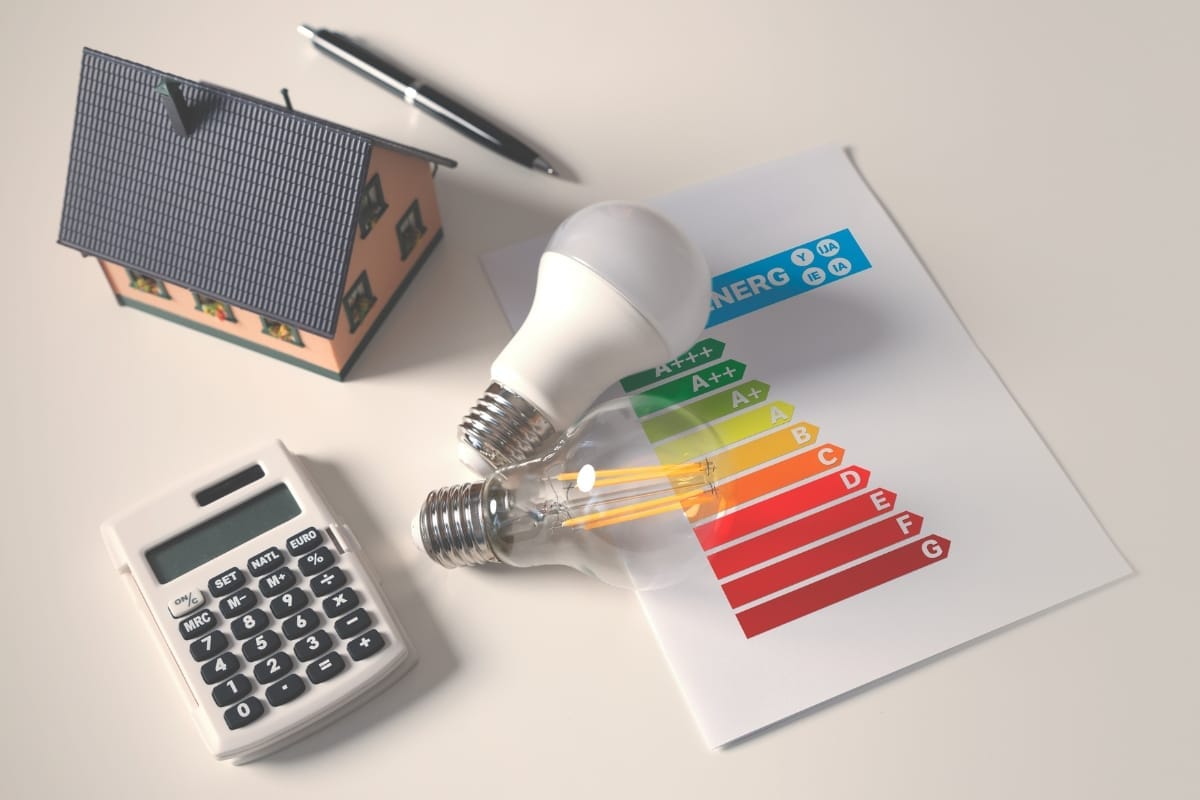
Proper insulation is a cornerstone of energy efficiency and plays a critical role in the performance of your HVAC system. Without adequate insulation, your system works harder to maintain comfortable indoor temperatures as conditioned air escapes, and outdoor air infiltrates your home. This not only leads to energy wastage but also increases wear and tear on your HVAC unit.
Start by identifying and addressing common areas where air leakage occurs. Inspect windows and doors for drafts and seal any gaps using weatherstripping or caulk. Even small leaks can have a significant impact on your home’s energy efficiency. Next, turn your attention to less obvious but equally critical areas, such as attics, basements, crawl spaces, and walls. Adding insulation to these spaces can dramatically reduce heat transfer between the indoors and outdoors.
Attics are particularly important, as they are a major source of heat loss in the winter and heat gain in the summer. Installing insulation with the appropriate R-value (a measure of thermal resistance) for your climate zone can create a more effective barrier against temperature fluctuations. Similarly, insulating basements and crawl spaces prevents cold air from seeping into your home and keeps the conditioned air contained.
Don’t forget to check for outdated or damaged insulation that may no longer be effective. Replacing or upgrading old materials with modern, energy-efficient options such as spray foam or fiberglass can enhance your home’s overall thermal envelope.
Proper insulation not only reduces the strain on your HVAC system but also maintains consistent temperatures throughout your living spaces, eliminating hot and cold spots. This results in lower energy bills, a smaller carbon footprint, and improved comfort for you and your family.
Conclusion: Embracing Year-Round Comfort with Proactive HVAC Maintenance
Proactive HVAC maintenance is essential for Atlanta residents to ensure year-round comfort and efficiency. By understanding how your HVAC system works and following these maintenance tips, you can prevent unexpected breakdowns, improve indoor air quality, extend the lifespan of your unit, and save on energy costs.
Prepare your home for the changing seasons with expert HVAC maintenance to ensure comfort, efficiency, and peace of mind. inAir Heating & Air is your trusted partner in Atlanta for top-quality HVAC services tailored to your needs.
Don’t wait until the weather changes—act now to keep your system in peak condition. Call us at (770) 233 7777 or get in touch through our website form. Let inAir Heating & Air help you stay comfortable year-round!




